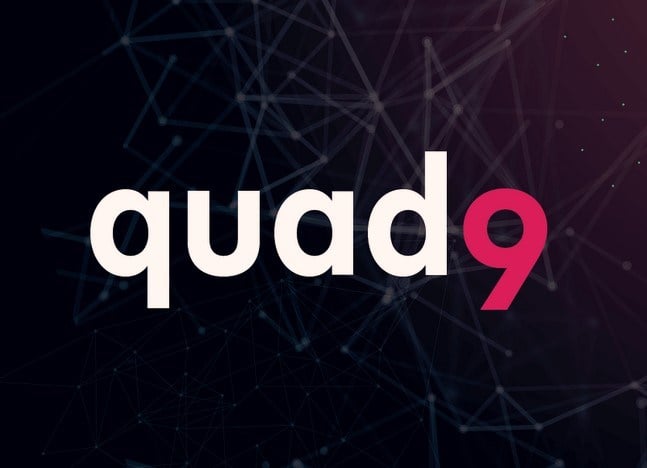 In 2021, Sony Music obtained an injunction that ordered DNS resolver Quad9 to block a popular pirate site.
In 2021, Sony Music obtained an injunction that ordered DNS resolver Quad9 to block a popular pirate site.
The injunction, issued by the District Court of Hamburg, required the Swiss DNS resolver to block access to a site that links to pirated music.
The name of the targeted site wasn’t revealed, but we deduced that Canna.to was the target. That site was also targeted in a voluntary blocking agreement previously signed by rightsholders and ISPs.
Quad9 Appeals, Sony Files Main Proceeding
The Quad9 Foundation fiercely opposed the injunction. The DNS resolver submitted an appeal to the Court hoping to overturn the blocking order, arguing that the decision sets a dangerous precedent.
The non-profit foundation stressed that copyrights should be respected online, but believes that enforcing blocking measures through third-party intermediaries goes a step too far.
The initial objection failed when the Regional Court in Hamburg upheld the blocking injunction. However, that was just a preliminary proceeding, and Quad9 was adamant it would continue the legal battle to prevent a broader impact on the Internet ecosystem.
Quad9 isn’t alone in viewing this as a crucial matter; Sony does too, albeit for different reasons. The music company went on to initiate a main proceeding at the Leipzig court, the next step in the legal process where both sides would be able to present more evidence and expert opinions.
Court Hears DNS Blocking Case
The matter was heard yesterday at the regional court in Leipzig, where both sides were able to present their arguments. While a decision is still forthcoming, Quad9 reiterated the importance of the case. If Sony wins, Quad9 believes that more and broader blocking actions may follow.
“Although this blocking applies only to Quad9’s services located in Germany, by bringing this court case to fruition, Sony Music — and those who may eventually follow — appear to be pushing the idea that they are above and beyond the principles of freedom, decentralization, and proportionality,” the DNS provider writes.
Quad9 argues that it’s merely passing on metadata; it doesn’t store or transfer any content. It’s in the best interests of the public at large to keep DNS resolvers universally accessible, and any curation should be done in the best interests of users, not corporations.
That last part could be relevant; Quad9 has positioned itself as a secure DNS resolver that gives users the option to block millions of malware-related connections and websites. In this case, however, it believes that court-ordered piracy blockades are not in the public interest.
“Recursive DNS is not an effective or reasonable place to impose external policies that are undesired or unrequested by the end user,” Quad9 notes.
“The ability of corporate entities to impose their will on unrelated third parties such as DNS resolution services creates a chilling effect which will reduce free information exchange, and introduces a significant risk of overreach and abuse against which there is little recourse.”
Expert Contrasts Key Piracy Cases
The DNS resolver is supported by the German Society for Freedom Rights (GFF), which commissioned Prof. Dr. Ruth Janal to prepare an expert opinion. The report concludes that intermediaries such as Quad9 should’t be held liable for third-party copyright infringement.
According to the professor, Sony Music’s arguments and the lower court’s decision equate the DNS resolver to content hosting platforms such as YouTube and Uploaded, whereas Quad9 is more akin to a mere conduit service, in the sense that it simply passes on bits.
Germany’s Federal Court previously ruled that hosting services can indeed be held liable for copyright infringement (e.g. YouTube/Uploaded) but the same logic shouldn’t apply to a DNS provider, Professor Janal argues.
As a mere conduit service, courts could require Quad9 to take action through a “no-fault” injunction, a process that’s already used in ISP blocking orders. In those cases, however, the intermediary isn’t held liable for pirating users.
Specifically, a recent court order in Germany concerning Sci-Hub clarified that these types of blockades are only warranted if all other options have been exhausted. That includes going after a website’s hosting provider.
‘Sony Should Go After the Hosting Company’
GFF project coordinator Felix Reda, who previously served as a Member of the European Parliament for the Pirate Party, notes that Sony failed to go after the hosting company in this case.
“Crucially, Sony did not seek an injunction against the EU-based hosting provider of the website at issue in its lawsuit against Quad9 either,” Reda informs TorrentFreak.
“The expert opinion by Prof. Ruth Janal finds that clearly, Quad9 is a type of mere conduit service like ISPs and must therefore be treated on the basis of the rules of no-fault injunctions, which only allow DNS blocking if all options to bring the infringement to an end at the source have been exhausted,” Reda adds.
The music company is yet to publicly share its view on the case. Sony and other rightsholders will likely put forward their own expert reports arguing that blocking is both warranted and reasonable.
High Stakes
There is no denying that the stakes are high in this case. Quad9 and GFF fear that if DNS providers can be held liable rather than there being “no-fault”, they may choose not to oppose blocking requests going forward.
“If DNS services were treated as wrongdoers, the financial risk of opposing a blocking request would be so high that they would have little other choices than to comply with any blocking request without taking the issue to court,” Reda says.
While there can be good reasons to block a site, doing so with court oversight helps to prevent over-blocking by considering the rights of service providers, copyright holders, and the general public.
For their part, rightsholders believe that third-party intermediaries should take responsibility. When DNS providers risk being held liable, action is guaranteed.





